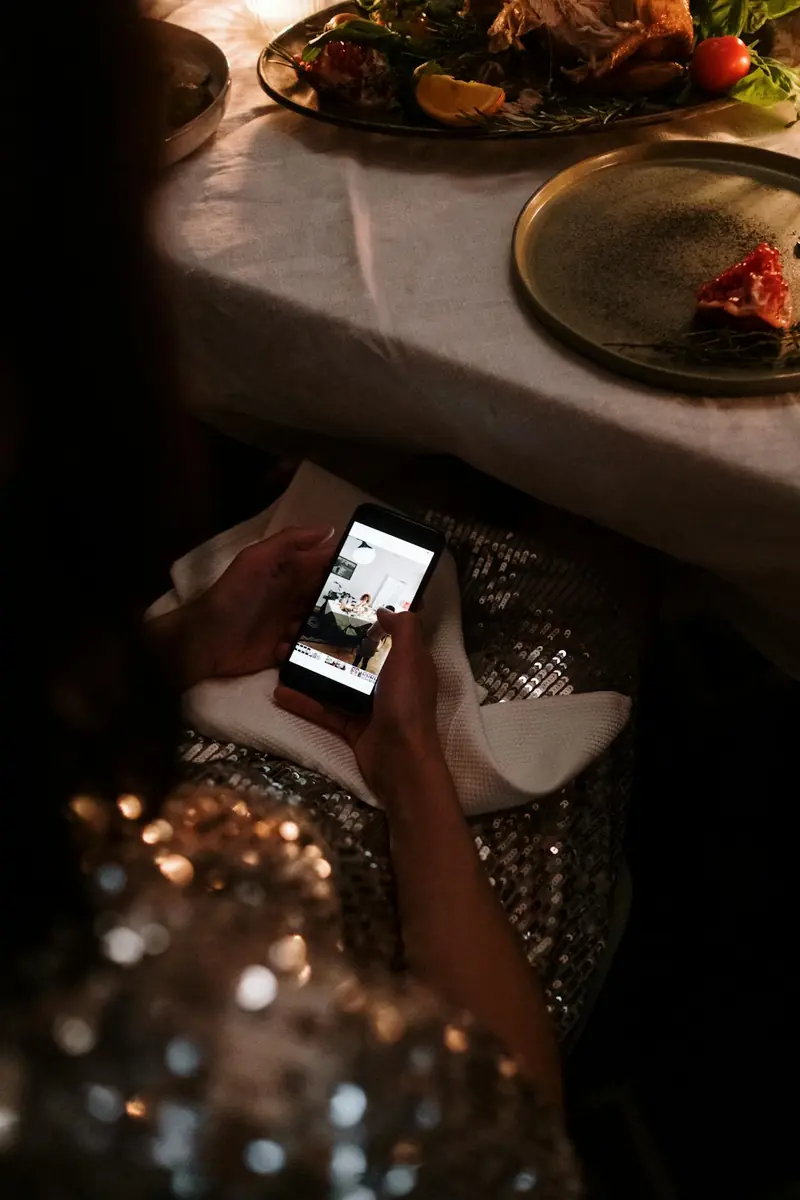
For social media enthusiasts, the smartphone is often the top priority in life. However, researchers recommend putting that priority aside during winter meals.
This advice applies not only to the upcoming holidays but also to any communal gatherings around food.

Why Are Scientists Sounding the Alarm?
Dr. Gareth Nye, a senior lecturer in physiology at the University of Chester in the UK, has warned that phones can be breeding grounds for harmful microbes that eventually make their way to the dining table.
The dangers primarily stem from bacteria that can cause a range of issues, from food poisoning to skin infections. For individuals with weakened immune systems, the risks extend beyond gastrointestinal disorders like diarrhea and vomiting, Dr. Nye noted. They could even develop sepsis or pneumonia.
What Bacteria Are We Talking About?
Healthcare workers, even when not in a clinical setting, can carry a variety of bacteria, the expert pointed out. The most common include Pseudomonas aeruginosa (which is responsible for serious respiratory or skin infections) and Acinetobacter baumannii (which can lead to meningitis).
As for non-healthcare workers, they primarily carry bacteria on their phones, with the most common being gram-positive spore-forming bacteria. According to the researcher, these are linked to food poisoning and other gastrointestinal issues.
Moreover, “dangerous bacteria like E. coli and fecal streptococci are found on nearly all surfaces of phones.”
What Can You Do?
First and foremost, Dr. Nye advised keeping your smartphone as far away from the dining table as possible. But if you can’t go without it, there are certain guidelines to follow.
As trivial as it may sound, Dr. Nye explained that these bacteria typically end up on smartphones through our hands.
“Every day, our hands touch about 150 different objects, and if you commute to work, it’s even more,” he said. Each of these surfaces can introduce more dangerous bacteria.
The next place our hands usually touch is the phone screen.
Bacteria transfer to our hands during trips to the restroom and then migrate to our phones. So, it’s no surprise that bacteria naturally spread around the dining table.

Phones Need Washing Just Like Hands
Experts recommend not only washing your hands regularly but also cleaning your smartphone. First, it should be disconnected from any power source.
Next, remove the phone case and rinse it with hot soapy water, allowing it to dry completely, as reported by the Daily Mail. It’s advisable to use a specialized cleaning solution to avoid leaving behind any residue, especially if the case is made of genuine leather or faux leather.
Then, wipe the exterior of the phone with a lint-free cloth to remove dust and debris. After that, use a wooden toothpick to clean out dust and dirt from the phone’s ports.
Finally, wipe the phone’s exterior with a cloth dampened with 70% isopropyl alcohol or a cloth slightly moistened with hot soapy water. Be careful to ensure that liquid does not enter the ports.
It’s also crucial to wash your hands regularly to prevent the spread of germs.
Dr. Gareth Nye asserts, “Thorough hand hygiene and daily disinfection of your phone should be sufficient to prevent most infections.”

